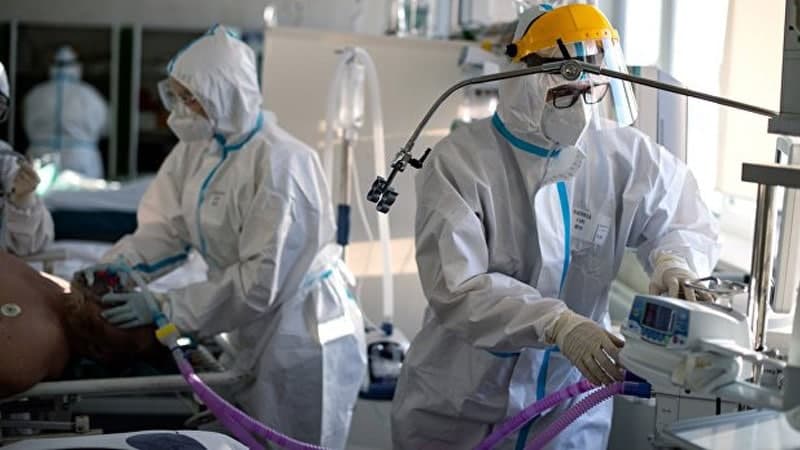Uzbek and Russian scientists found new way to combat coronavirus
A team of scientists from Uzbekistan and Russia discovered that low doses of radiation (such as X-ray radiation) could help fight coronavirus.

Photo: RIA news agency /Ilya Pitalev
According to the press service of the Ural Federal University, specialists develop methodical recommendations on the use of radiation in the treatment of patients with COVID-19 and in disinfection.
“An original mechanism was proposed for the impedance of the heredity molecule of the virus under the influence of low doses of soft X-ray radiation. The point of this pioneering idea is that the huge RNA molecule of a given virus, when enters a human cell, has to deform strongly at many sites along its length. It turns out that the deformed places along the RNA molecule are a thousand times more sensitive to radiation than the healthy cell molecules. From this it followed that small doses of radiation harmful to the virus will be absolutely safe for healthy cells,” professor of the university Anatoly Zatsepin said.
The study of radiation effects on the coronavirus is carried out by scientists of the Academy of Sciences of Uzbekistan and Ural Federal University. The study began in April 2020 with a proposal of a group of Uzbek scientists led by Professor Boris Oxengendler.
Currently, the scientist found several details of mild X-rays and even ultraviolet rays on coronavirus in joint studies. Specialists propose to use radiation not only for the treatment of human beings and the prevention of diseases but also for the disinfection of objects, products and rooms.
A joint team of scientists from Uzbekistan and the Russian Federation is currently developing a treatment methodology.
“This method is useful not only against COVID-19 but also for other viruses, particularly mutations. We design and analyze the mechanisms of radiation exposure at the micro-level, and biologists and physicians help understand how this affects the human body as a whole,” Zatsepin stressed.
He concluded that scientists plan to determine whether the proposed mechanism is effective in all likely situations or not.
Related News

13:46 / 24.02.2026
Shavkat Mirziyoyev awards “Jasorat” medal to Uzbek man who saved child from seventh floor fall in Russia

12:11 / 13.02.2026
Germany urges Central Asian states to comply with Russia sanctions

11:35 / 13.02.2026
Foreign business presence in Uzbekistan nearly doubles in five years

19:54 / 12.02.2026




